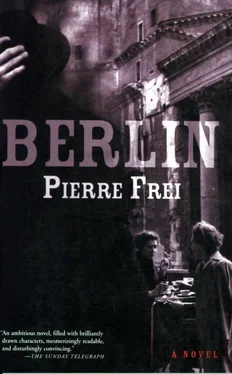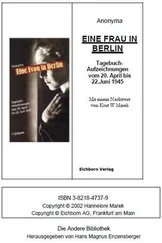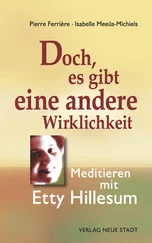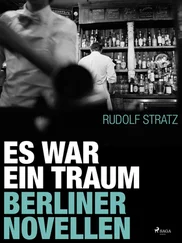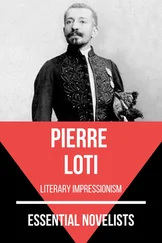She put on Madame Schiaparelli's diaphanous underwear and the expensive silk stockings. She'd quite forgotten that she had a good figure and long, slender legs. The high-heeled shoes set them off beautifully. The elegant Printemps dress was as good as new. Parisian chic in Onkel Toms Hiitte. How Franz would stare!
The clock showed four on the dot when he knocked. With every step to the door, her anticipation grew. She slowly opened it. He had a pot of geraniums under his arm, and swallowed with embarrassment.
'So there you are.'
'Good day, Fraulein Lene,' he said stiffly. 'How are you?'
'Fine, thanks. Now, let's forget the formalities. Come on in.'
He put the pot of geraniums down. 'Pretty place here.'
'Yours in Schoneberg was prettier. Well, we can make up for all that. We're still young, aren't we?' She poured the sparkling wine. 'Cheers, Franz.'
'Cheers, Lene.' His awkwardness was melting away. He sat down. 'I still can't believe the two of us are here.'
'The three of us.' She pointed at the rutting stag over the chest of drawers. He looked at the picture as if he were seeing it for the first time. She drank in the sight of him. He had rounded out a little, and it suited him. The dimple in his chin was slightly deeper. His hairline had receded a bit. His brown eyes were the same as ever. They bent a calm and honest gaze on the world.
'It's been a while, hasn't it,' she said.
'You came to me because you wanted to get away from that man Fredie, and I took you to the Pension Wolke. That's the last time I saw you.' He bent his head. 'But I told them where you were. It was cowardly of me, but I was scared. It's a funny thing, I never understood why they suddenly left me alone. Most people would have ended up in a camp. Did they leave you alone too?'
'Of course,' she lied. 'We were both lucky, that's what.' She moved to face him. 'Stand up, Franz, and kiss me properly at last.' She pulled him up by his dyed British uniform tunic until their faces were very close. Then they were just a man and a woman, and everything was clear between them.
He was large, and hard. Her moistness made him a supple messenger of love. The afternoon wasn't enough for him, or the evening either. They didn't talk much as they rested in between times, probably because there was too much to say.
Just before ten he got dressed, so as not to miss the last U-Bahn train before curfew. She took one of the flickering candles off the chest of drawers. 'So you don't fall down the stairs.' They said no elaborate goodbyes. He'd be back tomorrow.
And then we'll talk about the future,' he promised.
'The future,' she repeated, because at last she had one.
Elated, she went into the bathroom. The stove was still warm. The fine spray of the shower set off an indescribably sensuous tingling of her skin. She directed the hand-held jet on her mount of Venus, and came to climax at once. It was like the full stop to a wonderful first chapter.
She was just wrapping herself in her dressing gown when she heard a faint knocking. She tied the belt and took her torch from the wardrobe in the corridor. 'Franz?' Had he missed his train? Outside stood a figure in goggles and a leather cap. It held a clinking chain between two raised gauntlets. 'Here, what's the idea?' she said angrily.
She had no time to feel afraid. The figure forced her back into the apartment. Cold metal went around her throat and cut off her artery. The lack of oxygen to her brain set off euphoria.
A heavenly peace filled her, peace that no earthly pain could penetrate. She was floating weightlessly towards a sunny Riibenstrasse, full of bright houses and happy people, with a laughing Franz leading them all.
'Watch out, everyone, here comes Lene!' she cried happily.
THE DISTRICT COUNCILLOR'S large, walnut-veneered Superhet radio had survived air raids, Russians, and Inge Dietrich's pressing requests to let her exchange it for food at Frau Molch's. Not even the prospect of a few packets of Yugoslav Drinas, more affordable than American cigarettes, could make Dr Hellbich change his mind. 'One has to know what's going on in the world,' he stated, and he listened to the news when the power was on.
There was a good deal going on in the world during that early autumn of 1945. Japan had surrendered in the face of America's atom bombs, and was allowed to keep its Emperor. A largely unknown British general had fired the equally unknown new mayor of Cologne, Konrad Adenauer, for incompetence. In Hollywood, Greta Garbo was making her fourteenth movie. The Scotsman Alexander Fleming won the Nobel Prize for discovering some kind of miracle medication.
'Made of mould, would you believe it?' commented Hellbich.
'Can we listen to AFN?' asked Ralf, when the news was over and the announcer was threatening to play merry operetta tunes.
'You can do that when I'm not home.' His grandfather hated the 'tuneless tootling' of the American Forces Network.
The radio had a graduated tuning scale which glowed a mysterious green and bore names like Tripoli, Hilversum and Brindisi. They appealed to Ben's dreams of distant places, not that he really wanted to go anywhere except perhaps America, where the longest cars and the sharpest gentlemen's fashions were to be found. A GI had left the latest issue of Esquire lying in the U-Bahn. Ben leafed through its sterile world of sexless glamour and deceptive glossy advertising, where a bottle of Johnnie Walker was praised to the skies as if it were holy water. At the back of the magazine he found a coloured ad for the Buick Eight. This quality limousine was still top of his list. Its driver was leaning casually against the radiator, wearing a doublebreasted suit. which presented Ben with a dilemma. Would it be better to opt for a button at pocket level, as shown here, which would mean he could have longer lapels, or was the waist-level button which he had hitherto favoured the only real thing? He'd have to discuss it with Rodel. After all, the master tailor was an authority in the field.
Above all, however, he must get twenty cartons of Yankee cigarettes out of Clarence C. Brubaker by playing on his hopes for the greatest journalistic scoop of modern times. Only then would the coveted suit and suede shoes be within his reach. The Fdhrer's right-hand man would be a help. Ben grinned happily to himself, because now he knew how to bring it off.
That afternoon he was trotting along the villa-lined streets behind US headquarters. Brubaker's car was in the drive. The aspirant to the Pulitzer Prize had had his Ford sent over from Hackensack at US government expense.
Ben did not press the doorbell as usual, but walked round the side of the house and tapped softly at a window pane. Brubaker was hunched over the sheet of paper in his Remington. With a conspiratorial air, Ben signalled for him to open the back door.
Brubaker opened it. 'What's happening?' he asked in surprise.
'I've been followed. But I managed to shake them off.' Ben injected a touch of Humphrey Bogart into the part he was playing. He had just seen The Maltese Falcon.
Hackensack's star reporter didn't understand. 'Who followed you?'
'Them, of course. They got wind of it. We must hurry. He's waiting for you. Do you have the cigarettes?'
'Fifteen cartons. I knew you'd do it.' Brubaker was obviously pleased.
'Chesterfields?' Ben checked, and wondered how he could raise the price to twenty. After all, this wasn't just some ordinary Nazi like friendly little Herr Adler, who crept round his own former premises with his head hung low, as if he were a war criminal. And all he'd done was run the National Socialist People's Welfare Office for the Onkel Tom area, giving the housewives who were always short of ration coupons a few extra on the sly. No, this was a top quality Nazi, and as such he had his price.
Читать дальше
